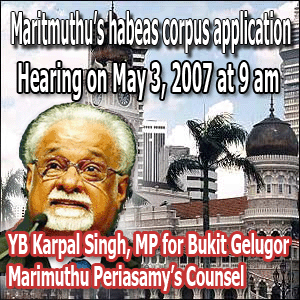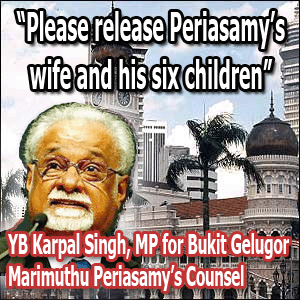The Prime Minister, Datuk Seri Abdullah Ahmad Badawi said yesterday that the Chief Justice must answer the allegation that a Federal Court judge had failed to write grounds of judgment in 35 cases since his High Court tenure, covering both civil and criminal cases.
DAP National chairman and MP for Bukit Gelugor, Karpal Singh, has named Federal Court judge Datuk Hashim Yusuf in Parliament on Monday as the judge concerned.
The Prime Minister said it was disappointing to discover that there may be judges who had not performed their functions and duties adequately in the pursuit of justice.
The Prime Minister is right — the Chief Justice Tun Ahmad Fairuz Sheikh Abdul Halim cannot continue to keep his silence after he had flatly denied that there was any Federal Court judge who had not written as many as 30 grounds of judgment and challenged for proof to be provided.
As such proof have been provided and the Federal Court judge concerned named, Fairuz should publicly apologise for misleading the Malaysian public and explain whether he is heading a competent, responsible, accountable and professional judiciary.
Will Fairuz take out the Federal Court judge concerned from all current Federal Court cases until he had written up all the grounds of judgments of 35 outstanding civil and criminal cases? Continue reading “FC judge with 35 outstanding judgments from High Ct – why PM only aware after more than a month it was reported publicly?”








